idolomantis
Well-known member
Also on this forum, i see, Oliver 
You just don't give up, do you?
You just don't give up, do you?

+1I'm sorry Zoe.I guess it was to late. In the future if you find one of your mantids start to vomit. Take it out of it's enclousure and place it somewhere the ventilation is good. Give it some water, and don't feed it for awhile. I have manged to save quite a few mantids this way.
I guess you have not read the right books... I cannot let you spread the idea that "...no one is funding research on mantis maladies and that therefore, there is no scientific information on them."No. Zoe, I wasn't sweet and kind to poor Oliver, who, after asking for advice on this forum and receiving a lot of good suggestions from Rick and others, explicitly dismissed them in favor of his vet (!), who said, I believe , that the mantis will live or die, and his brother's pathologist who will test his mantids' stool for, among other things, "viral infection"(!)As you have discovered, mantids, like other insects, can malfunction in ways that confound us and that would kill the insect in nature. When you start reading books on entomology, you will find that no one is funding research on mantis maladies and that therefore, there is no scientific information on them. Initially, Oliver described an isolated case that appeared to have nothing to do with infection, but subsequent information suggested that it certainly is.
Most of us, including Rebecca and Rick, who gave suggestions in this case, usually only have isolated cases of premature mantis death. Oliver is unusual in that he is experiencing an epidemic. Whether an epidemic occurs in a town, hospital (very common!) or bug room, human error, i.e. bad husbandry, is almost always to blame. Bacterial infections, particularly, are virtually always due to conditions that allow bacterial contagion. Frederick Prete summarizes this nicely in his The Praying Mantids: "Disease can pose a threat, and some facilities have lost entire cultures to infections (in some cases, possibly introduced by crickets from commercial suppliers). Disease is unusual, however, and reasonable cleanliness, moderate humidity, and quarantine of new arrivals will minimize risk." p.315.
Most of us can neither afford nor need the luxury of a culture, though it might point the way to avoiding a repetition of the problem, and we sometimes endanger our healthy stock by keeping a mantis alive that should probably be destroyed. In Oliver's case, destruction of his entire stock and sterilization or replacement of all equipment is probably the best way to proceed. This, obviously, does not apply to you and your isolated case, and I seriously doubt that your little guy carries an infectoion.
So there you have it. I must admit, though, that I regret suggesting to Oliver that he start collecting tie pins. He lives in a country that boasts the supremely collectible Limoges china.....



Who said I would "give up" ? Not me.Also on this forum, i see, OliverYou just don't give up, do you?











Yes, actually.Idolomantis, something we should know? :huh:
Thanks for the info.Yes, actually.This guy has been on other forums aswell, starting arguements. He left there and now he's here to do the same.
He left because people wouldn't agree with his ideas, people who have been doing this for many years.
Not a lie, not a joke. Stool testing is called "coproculture". If one day you suffer from gastro-intestinal symptoms (which I wish you NOT), you GP may ask you to take a sample of your stool and take it to a lab. Besides, insect pathology DOES exist (bacteria, viruses, fungi, protozoans). It is a common subject in entomological research, the goal being to find germs or toxines produced by germs that could be passed from a "harmless" insect to an insects considered as "pest". Each year, 1/3 of the worldwide crops (agricultural production) is eaten by insects !Thank you all for your help, and in the future should any of my other mantises start vomiting, I will most definitely act ALOT sooner, and I'm sorry for not helping poor Brutal sooner. You all really do have good advice.
Phil: Stool testing? Viral infection? Pathology? Sounds like SOMEBODY is l-y-i-n-g!
A very interesting analysis.I know this is going to sound strange. I have a theroy. Of course i have no facts and scientific proff to back this up, but here it goes. I have come to the conclusion this is not a form of diease that can be passed from insect to insect, but rather a form of rot. I have noticed only very fat mantids will vomit a day later after eating more than it can handle. I believe the vomit is decomposing food that the mantid was not able to digest and absorb in a timely fashion. This would also acount fo the horrible smell. The thing that gets me is i'm able to simulate this at any time with Rhombodera sp., and P. wahlbergii.
I'm perfectly aware that stool testing is real, but to test mantis stool is purely STUPID. Honestly, besides you, who else on the forum sees their mantis vomiting, and thinks "Holy beaten prostitute, Batman! I better find one of their tiny poops and call all the vets around and see who'll test it!"? I sure don't. Also, I don't appreciate you telling us all that it's inevitable for a mantis to die of illness. You're obviously trollin' and I suggest you STOP.Not a lie, not a joke. Stool testing is called "coproculture". If one day you suffer from gastro-intestinal symptoms (which I wish you NOT), you GP may ask you to take a sample of your stool and take it to a lab. Besides, insect pathology DOES exist (bacteria, viruses, fungi, protozoans). It is a common subject in entomological research, the goal being to find germs or toxines produced by germs that could be passed from a "harmless" insect to an insects considered as "pest". Each year, 1/3 of the worldwide crops (agricultural production) is eaten by insects !Regards,
O.
Yes, especially when I disagreed with the fact that moulting was influenced by humidity rate, and I had to post pictures showing my mantids had moulted successfully at only around 35% humidity, and yet 2 breeders did not believe me ! Or when I observed several successful matings with my freshly moulted Hymenopus females (4 to 10 days after their final moult), and I showed them the empty spermatophore I had found (THE evidence that successful mating did take place in spite of the young age of the females), and yet, they said I was "nuts" or a liar. Not that people would not agree with my ideas as Idolomantis put it, but they would not agree with the facts I brought to their eyes. So I said to myself that I was not going to bring them evidence that I am not a mythomaniac by asking for a psychiatric assessment and posting it on the forum (anyway, I'm sure they would have questioned the authenticity of the paper) . That's why I decided to quit this forum. So I repeat, the problem did not lie in some people not agreeing with my opinions (which everyone is free to do as an opinion does not necessarily reflect the truth, and so it CAN be questioned), but in some stubborn people not believing what their eyes could see. Am I to blame for that ???Yes, actually.This guy has been on other forums aswell, starting arguements. He left there and now he's here to do the same.
He left because people wouldn't agree with his ideas, people who have been doing this for many years.
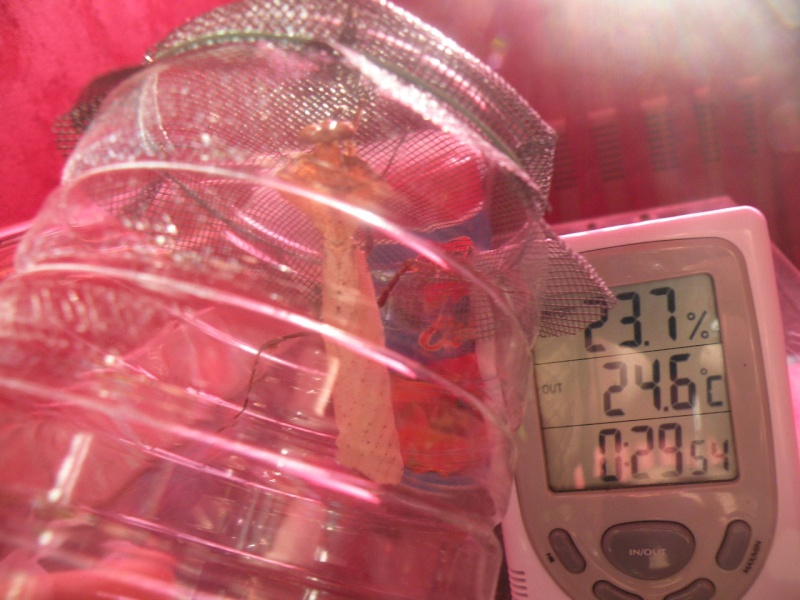
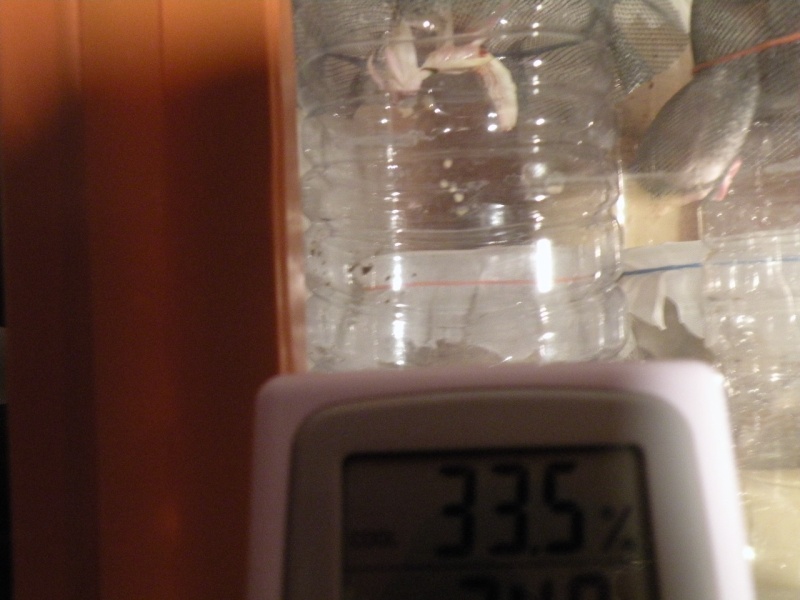
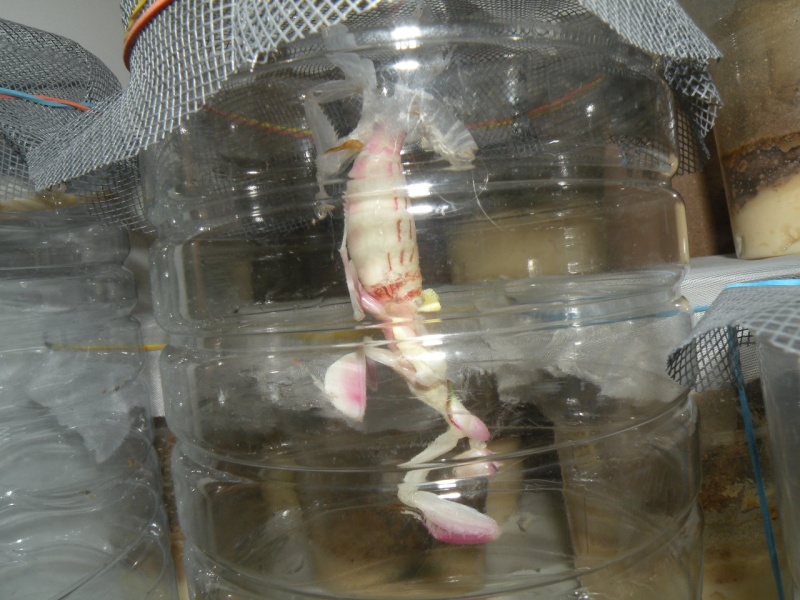
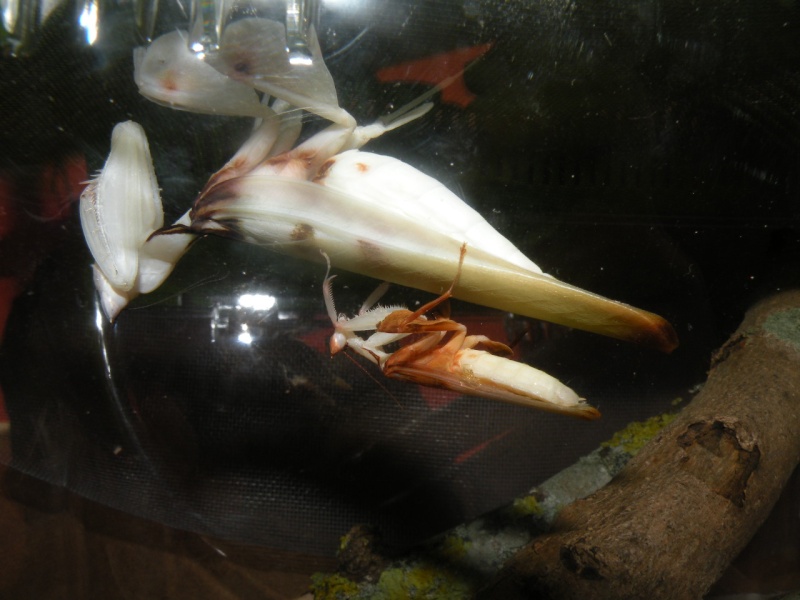
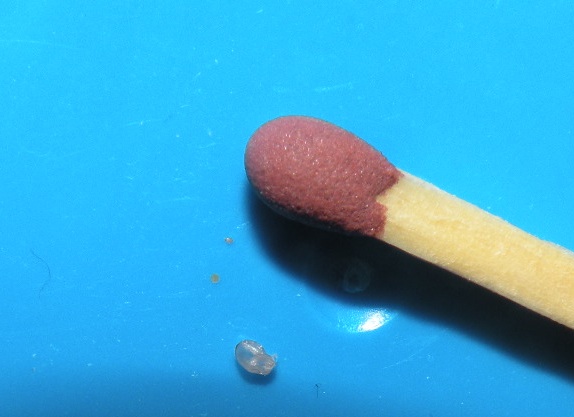
Who are you, you, brainless little teen girl, to say that I'm stupid and to order me to STOP ??? Do you think I have lessons to receive from a stupid teen like you who knows nothing about life ? I am a 38-year man with a doctorate in English literature and a master's degree in biology. So shut you effing mouth, take your teddy bear, and go to bed.I'm perfectly aware that stool testing is real, but to test mantis stool is purely STUPID. Honestly, besides you, who else on the forum sees their mantis vomiting, and thinks "Holy beaten prostitute, Batman! I better find one of their tiny poops and call all the vets around and see who'll test it!"? I sure don't. Also, I don't appreciate you telling us all that it's inevitable for a mantis to die of illness. You're obviously trollin' and I suggest you STOP.
I don't care what you appreciate or not. Who do you think you are to talk like this ? The Queen of England ? As a famous person , you'd rather remind me of Paris Hilton.I'm perfectly aware that stool testing is real, but to test mantis stool is purely STUPID. Honestly, besides you, who else on the forum sees their mantis vomiting, and thinks "Holy beaten prostitute, Batman! I better find one of their tiny poops and call all the vets around and see who'll test it!"? I sure don't. Also, I don't appreciate you telling us all that it's inevitable for a mantis to die of illness. You're obviously trollin' and I suggest you STOP.